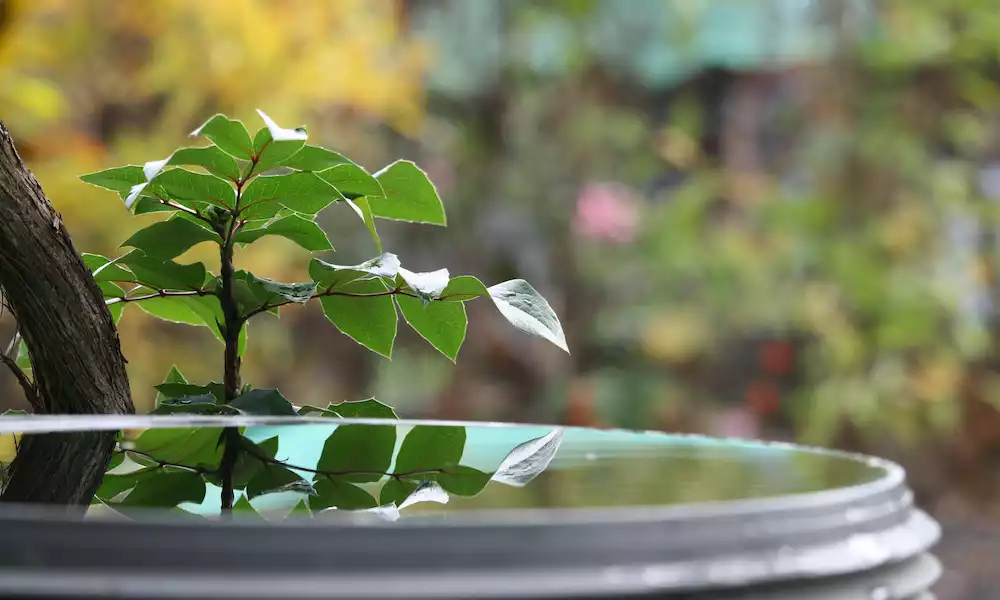Technology
Vikki Gerrard On RainWater Harvesting Systems And Sustainability

For this blog post, we have Vikki Gerrard of La Crosse explaining the role of rainwater harvesting systems in enhancing sustainability in real estate.
In recent years, sustainability has become a vital aspect of our lives that we cannot afford to ignore. With an increasing global population, water demand is rapidly rising, and our natural resources are depleting faster than ever.
Real Estate Industry
Real estate is one industry where water usage is exceptionally high, and the need for water conservation is of utmost importance. This is where rainwater harvesting systems can play a significant role in enhancing sustainability.
Rainwater harvesting systems collect and store rainwater and offer various benefits, such as reducing reliance on municipal water, decreasing water bills, conserving water resources, and promoting environmental responsibility.
Rainwater harvesting is an effective way to manage water resources, and it helps us move towards more sustainable living. Therefore, incorporating rainwater harvesting systems in real estate can be a vital step toward a more sustainable future.
Expert Vikki Gerrard of La Crosse, WI, delves deep into the role of rainwater harvesting systems in enhancing sustainability in real estate.
1. Conserve Water Resources
Conserving water supplies is the most crucial benefit of installing rainwater harvesting systems. Rapidly growing populations mean that demand for freshwater is disproportionately rising due to having difficulty maintaining sufficient storage levels.
When harvested rainwater is stored and utilized, this results in access to an uncommon resource that is greatly valued.
Due to regulations and building codes putting pressure on owners for conservation, efficient water utilization in real estate has become even more essential. That’s why managing a building’s water system is important.
What’s involved? Well, it means using rainwater harvesting tools and practices for conservation, plus installing pollution filters and management components to ensure maximum control over an environment’s sources.
2. Reduce Energy Consumption
Rainwater harvesting systems also play a significant role in enhancing sustainability by reducing energy consumption.
The traditional treatment and distribution of water require substantial amounts of electricity, resulting in high energy bills and carbon emissions. However, building owners can decrease energy consumption by implementing rainwater harvesting systems.
Harvesting and treating rainwater onsite reduces reliance on traditional city systems, lowering the energy required to extract, process, and supply fresh water in a building. This simple shift towards rainwater harvesting can significantly reduce the energy footprint of a building, making a significant impact toward a cleaner and more sustainable future.
3. Cost-Effective Measures
Cost-effective measures to reduce water consumption are becoming increasingly important. Implementing rainwater harvesting systems has emerged as a reliable and affordable option among the various strategies.
Collecting rainwater and using it for daily water needs can significantly decrease water bills, thereby saving costs. Another significant advantage of these systems is their relatively lower maintenance costs.
Compared to traditional water storage and filtration systems, rainwater purification processes cause less wear and tear, resulting in additional savings over time. So, investing in rainwater harvesting systems can save costs in the short term and provide long-term benefits to the environment and the building’s overall sustainability.
4. Preserve Natural Resources
Our planet’s resources are finite, and sustainable water management is vital in preserving them. Rainwater harvesting systems are one of the environmentally friendly approaches that can help conserve these resources.
Rainwater harvesting systems can significantly reduce reliance on traditional water systems, minimizing environmental impact.
When homeowners use water with greater awareness and conservation in mind, such as with rainwater harvesting systems, they become proactive participants in resource preservation.
In addition, installing a rainwater harvesting system can establish a company’s commitment to sustainability, contributing towards achieving LEED certification, which is desirable in the real estate sector.
5. Mitigate Urban Disasters
Integrating rainwater harvesting systems within urban planning is a critical solution for mitigating urban disasters.
In cities like Houston and Miami, floods are expected during the rainy season, causing significant damage to infrastructure and property. However, by harvesting and storing rainwater in a controlled environment, the impact of these floods can be significantly reduced.
Harmoniously integrating these systems into urban planning can mitigate the effects of urban disasters, enhance sustainability practices, and reduce community reliance on city water.
This win-win approach is a professional and practical solution to one of modern cities’ most pressing issues.
Final Thoughts
In conclusion, rainwater harvesting systems have demonstrated their capacity to improve sustainability in real estate by reducing the burden on municipal water supply while helping protect the environment.
With the rise of green building practices and increasing pressure to minimize our carbon footprint, this innovative approach has a critical role in shaping real estate’s future.
By harnessing the power of rainwater, we can significantly reduce the amount of energy required to pump, treat, and distribute water and promote our communities’ health and well-being. It is clear, therefore, that rainwater harvesting systems offer a compelling solution for those committed to advancing sustainable living practices in the modern world.
Vikki Gerrard of La Crosse, WI, argues that it is essential to recognize that sustainability practices in real estate enhance our environment, economy, and quality of life, making a win-win for all.






